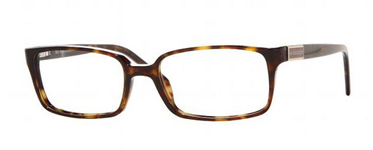
Source: SS2009121304 Damning evidence of my momentarily falling asleep, Ran Gamboa, Flickr
Both quantity and quality of the evidence in an argument are important. Remember this when you are reading or listening to someone else’s argument and when you are writing or presenting your own argument. Is the evidence accurate? Is there enough evidence?
Accurate evidence is not only free from error, but it is also precise and exact. The student who argued there were not enough motorcycle parking spaces on campus carefully recorded the number of times he could not find a space and figured out the ratio of car-to-bike parking opportunities. His claim seemed correct and truthful because of the quantity and quality of the information he provided. In addition, accurate evidence is up-to-date.
Quantity refers to the amount of evidence. When reading or listening to someone else’s argument or evaluating your own argument, ask yourself the following questions:
- Are there enough examples to convince an audience of readers or listeners? If not, what additional evidence might enhance the claims or assertions that have been made?
- Is the significance and appropriateness of the evidence discussed?
- Has the writer or speaker left anything out? Is the audience left with questions?
Read the following article entitled “REALLY? The Claim: Eating Carrots Improves Your Eyesight” by Anahad O’Connor. After you have read it, you will fill in a chart analyzing the argument and the quantity and quality of evidence the writer uses to support her claims.

Source: Burberry Glasses 2016, Vitamin-K, Flickr

Source: #Carrots for sale, dianaschnuth, Flickr
THE FACTS Your mother probably told you that carrots are good for your eyes—and you probably dismissed it as just an old wives’ tale. But the claim is not baseless.
Carrots are high in beta carotene, a component of vitamin A, which is critical to normal vision. It’s no coincidence that in countries where rice is a dietary staple but carrots and other sources of the vitamin are scarce, poor vision is rampant. So should you forget about glasses and just eat carrots? Probably not. Studies show that while taking vitamin A can reverse poor vision caused by a deficiency, it will not strengthen eyesight or slow decline in people who are healthy.
A study by researchers at Johns Hopkins in 1998, for example, looked at 30,000 women in South Asia at high risk of vitamin deficiencies. It found that a group that received vitamin A tablets had 67 percent fewer cases of night blindness than a group that received a placebo.
But in 2003, researchers at Brigham and Women’s Hospital in Boston found that a group of thousands of healthy men who took beta carotene pills for 12 years had the same rate of age-related cataracts as those given a placebo.
THE BOTTOM LINE Eating carrots helps maintain normal vision.
 Copy and paste the chart below into your notes. Then, fill in the right-hand column to analyze the argument and evidence. The first row has been completed as an example for you. When you are finished, check for understanding to compare your answers to the suggested responses.
Copy and paste the chart below into your notes. Then, fill in the right-hand column to analyze the argument and evidence. The first row has been completed as an example for you. When you are finished, check for understanding to compare your answers to the suggested responses.| 1. Scientific claim the article addresses | Eating carrots is good for the eyes. |
| 2. Facts about carrots | |
| 3. Evidence that supports the assertion that carrots improve eyesight | |
| 4. Evidence that suggests that carrots do not improve eyesight significantly | |
| 5. Subjects of the Johns Hopkins study | |
| 6. Purpose and results of the Brigham and Women’s Hospital study | |
| 7. Conclusion the article draws with regard to the original claim |
| 1. Scientific claim the article addresses | Eating carrots is good for the eyes. |
| 2. Facts about carrots | High in beta carotene, a component of vitamin A, which is critical to normal vision |
| 3. Evidence that supports the assertion that carrots improve eyesight | The John Hopkins study in which the women who received vitamin A tablets had 67% fewer cases of night blindness |
| 4. Evidence that suggests that carrots do not improve eyesight significantly | The Brigham and Women’s Hospital study in which the men who took beta carotene pills for 12 years had the same rate of age-related cataracts as those given a placebo |
| 5. Subjects of the Johns Hopkins study | 30,000 women in South Asia at a high risk of vitamin deficiencies |
| 6. Purpose and results of the Brigham and Women’s Hospital study | The Brigham and Women’s Hospital study refutes the John Hopkins’ study because the men in the Brigham and Women’s Hospital study taking beta carotene fared no better than those who were not taking it. |
| 7. Conclusion the article draws with regard to the original claim | Eating carrots helps maintain normal vision. |
You cannot judge the evidence behind an argument simply by saying it’s good or bad. You must have standards. Quantity and quality are reliable standards for assessing the effectiveness of an argument.